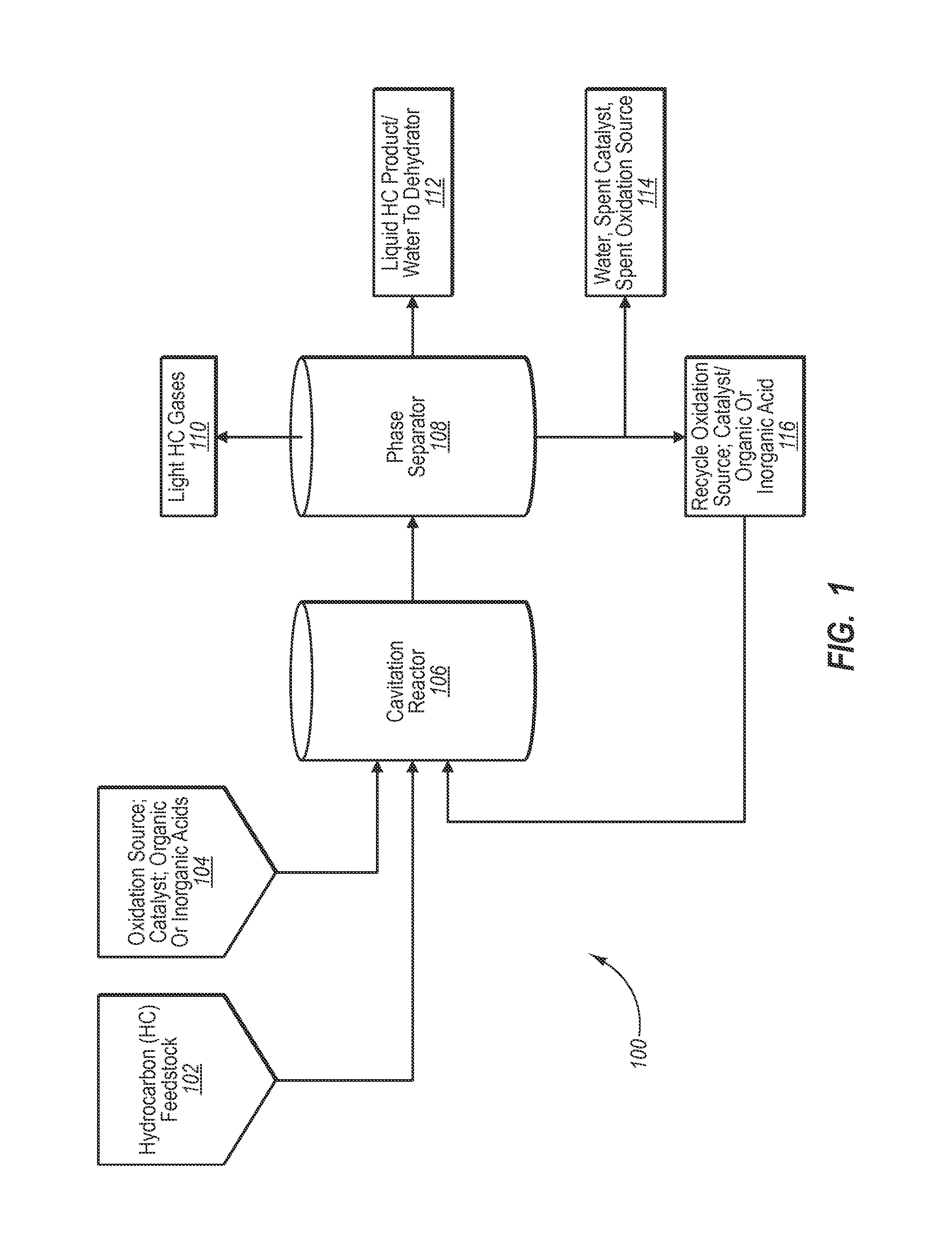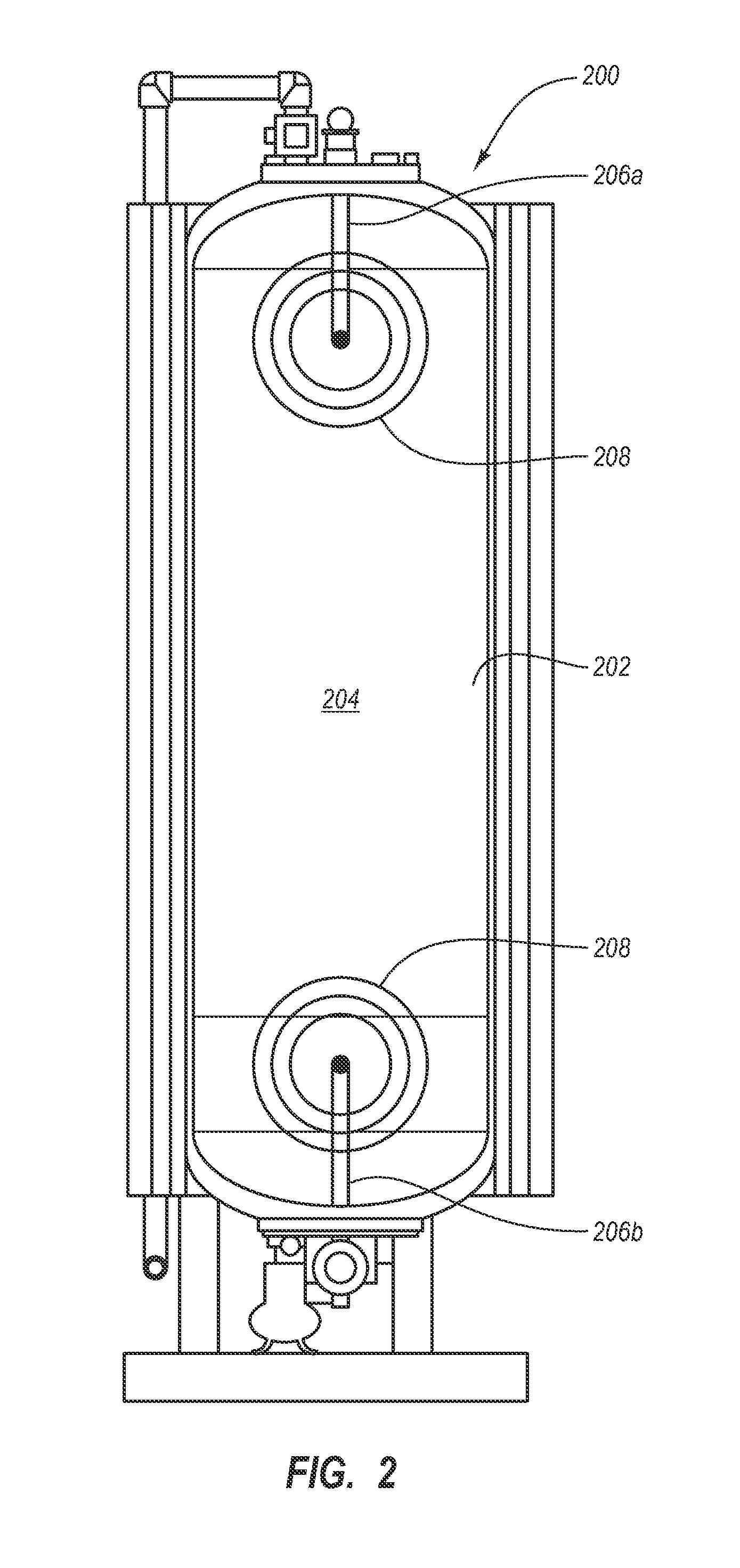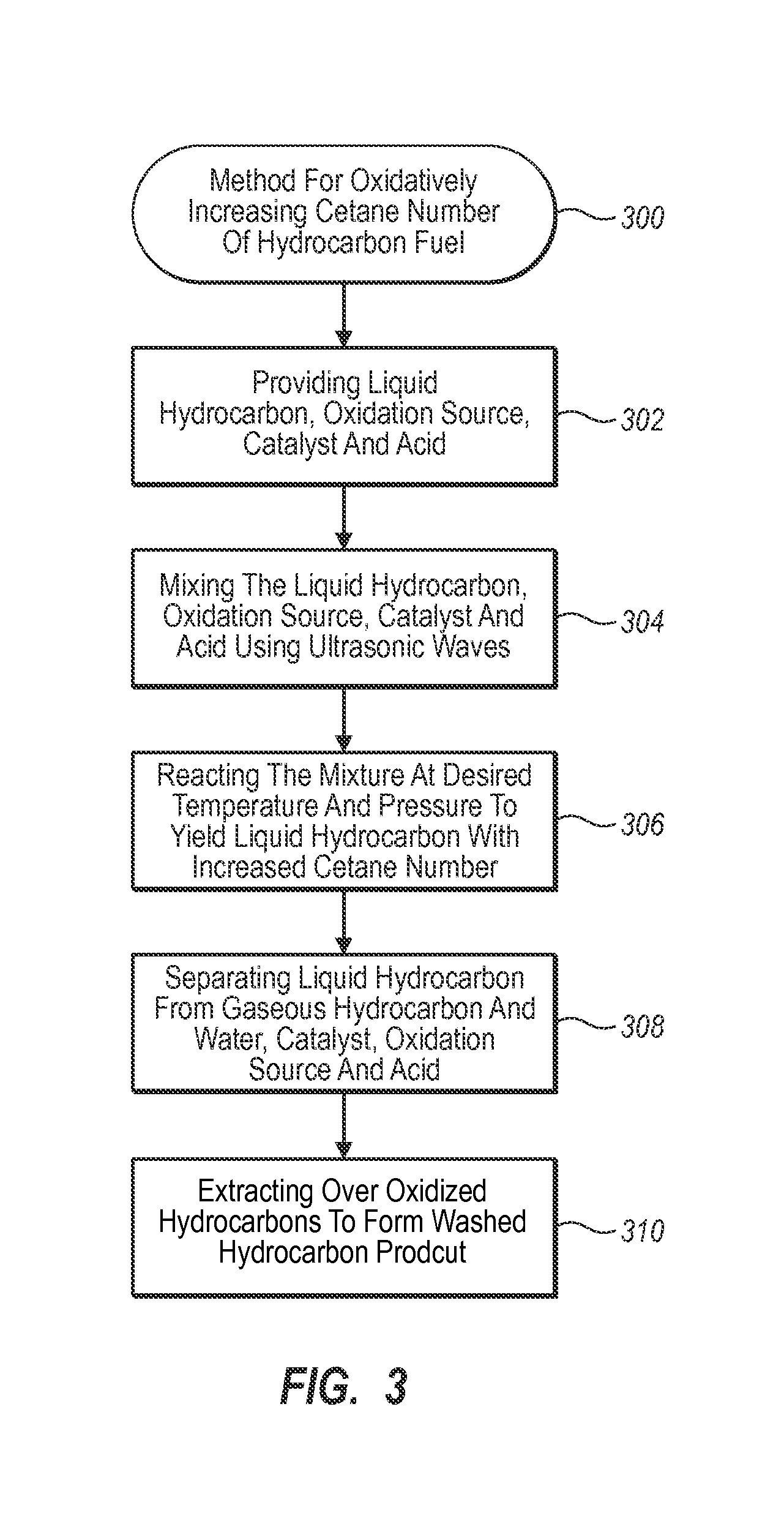Method and system for oxidatively increasing cetane number of hydrocarbon fuel
a technology of hydrocarbon fuel and cetane, which is applied in the field of hydrocarbon fuels, can solve problems such as energy release, and achieve the effect of increasing the cetane number of hydrocarbons
- Summary
- Abstract
- Description
- Claims
- Application Information
AI Technical Summary
Benefits of technology
Problems solved by technology
Method used
Image
Examples
example 2
[0088]An aqueous solution comprised of 50 ml of acetic acid and 150 ml of distilled water was placed into a 500 ml beaker. A Hielscher UP400S ultrasound device was inserted into the beaker. Thereafter a stream of ozone-containing air was bubbled into the aqueous solution while the ultrasound device was turned on at 100% amplitude for 5 minutes. The resulting ozone-treated aqueous solution and 200 ml of diesel were vigorously stirred for 10 minutes using a magnetic stirrer. The resulting diesel product was then vigorously stirred with methanol (in a ratio of 1 part methanol to 1 part diesel) to extract over-oxidized reaction products. The diesel introduced into the reactor was not pre-heated and was about 30° C. or below, and the temperature of the reactor was controlled using cooling or heat exchange and was kept below 50° C. The temperature of the reaction was controlled using cooling or heat exchange and was kept below 50° C. The methanol washed diesel product was injected into an...
example 3
[0089]An aqueous solution consisting of 5 ml formic acid, 25 ml aqueous hydrogen peroxide, and 70 ml distilled water was placed into a 500 ml beaker together with 300 ml of diesel. A Hielscher UP400S ultrasound device was inserted into the beaker. Thereafter a stream of ozone-containing air was bubbled through the aqueous and diesel phases while the ultrasound device was turned on at 100% amplitude for 5 minutes. The diesel introduced into the reactor was not pre-heated and was about 30° C. or below, and the temperature of the reactor was controlled using cooling or heat exchange and was kept below 50° C. A very thick emulsion was formed at the end of test. The emulsion broke within 60 minutes. The resulting diesel product was washed with methanol as in Example 2 to extract over-oxidized reaction products. The methanol washed diesel product was injected into an IQT machine and determined to have a measured cetane number of 61, which was an increase of 9 over the initial cetane numbe...
example 4
[0090]An aqueous solution consisting of 5 ml formic acid, 25 ml aqueous hydrogen peroxide was placed into a 500 ml beaker together with 300 ml of diesel. A Hielscher UP400S ultrasound device was inserted into the beaker. Thereafter a stream of ozone-containing air was bubbled through the aqueous and diesel phases while the ultrasound device was pulsed at a mode of 0.3 and 40% amplitude for 10 minutes. The diesel introduced into the reactor was not pre-heated and was about 30° C. or below, and the temperature of the reactor was controlled using cooling or heat exchange and was kept below 50° C. An emulsion was observed to form instantaneously, but which also broke rapidly. The resulting diesel product was washed with methanol to extract over-oxidized reaction products. The methanol washed diesel product was injected into an IQT machine and determined to have a measured cetane number of 62.0, which was an increase of 10 over the initial cetane number of the starting diesel material.
PUM
| Property | Measurement | Unit |
|---|---|---|
| boiling point | aaaaa | aaaaa |
| pressure | aaaaa | aaaaa |
| temperature | aaaaa | aaaaa |
Abstract
Description
Claims
Application Information
 Login to View More
Login to View More - R&D
- Intellectual Property
- Life Sciences
- Materials
- Tech Scout
- Unparalleled Data Quality
- Higher Quality Content
- 60% Fewer Hallucinations
Browse by: Latest US Patents, China's latest patents, Technical Efficacy Thesaurus, Application Domain, Technology Topic, Popular Technical Reports.
© 2025 PatSnap. All rights reserved.Legal|Privacy policy|Modern Slavery Act Transparency Statement|Sitemap|About US| Contact US: help@patsnap.com



